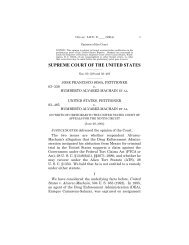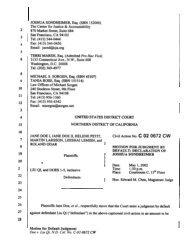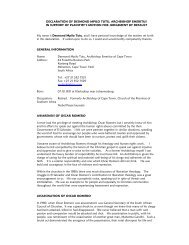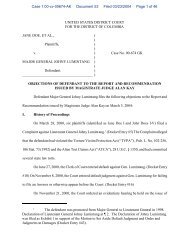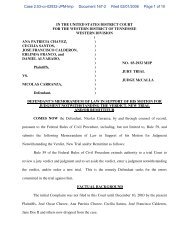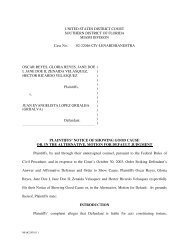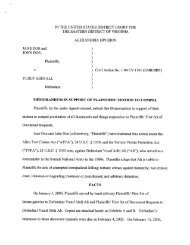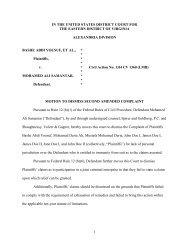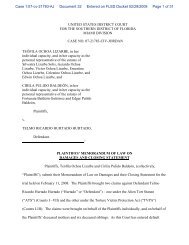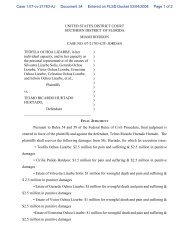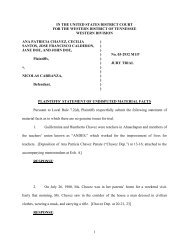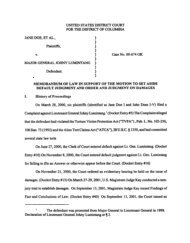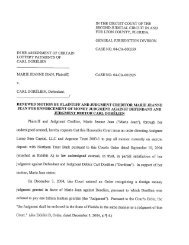Petitioner, v. Respondents. - Center for Justice and Accountability
Petitioner, v. Respondents. - Center for Justice and Accountability
Petitioner, v. Respondents. - Center for Justice and Accountability
Create successful ePaper yourself
Turn your PDF publications into a flip-book with our unique Google optimized e-Paper software.
33tution to the extent their claims fell within the scope ofhabeas protected by the Suspension Clause); Rasul, 542 U.S.at 473-78. Because Congress has not invoked its Suspensionpower, <strong>and</strong> because any such attempt in these circumstanceswould be invalid, the district court retains jurisdiction toconsider Hamdan’s habeas petition even if Congress haswithdrawn access to habeas previously authorized by statute.1. If Congress intends to implement its Suspension Clausepower, it must do so with unmistakable clarity. See St. Cyr,533 U.S. at 298-99. Nothing here meets that requirement. 33Congress has only suspended the writ four times; in each,Congress invoked its Suspension power, each time using theverb “suspend.” See Natl. Security Ctr. Br. 26-30. Simplywithdrawing a statutory basis <strong>for</strong> habeas is not a sufficientindication of Congress’ intent. Cf. St. Cyr, 533 U.S. at 298-300.2. The DTA should not be read as an attempted exerciseof the Suspension Clause power <strong>for</strong> the additional reasonthat any such attempt clearly would be invalid. Congresslacks carte blanche power to suspend the writ at will, even intimes of open war. Instead, the Constitution permits asuspension only when in “Cases of Rebellion or Invasion thepublic Safety may require it.” U.S. CONST. art. I, § 9, cl. 2. Inenacting the DTA, Congress made no such finding.In addition, even during actual “Rebellion or Invasion,”this Court has required that congressional suspension belimited in scope <strong>and</strong> duration in ways that the DTA is not.First, Congress must tailor its suspension geographically tojurisdictions in rebellion or facing imminent invasion. Thus,in Ex parte Milligan, this Court considered the Act of March3d, 1863, which suspended habeas in rebelling territories.Because Milligan was a resident of Indiana, a State not inrebellion, his right to habeas was protected. 71 U.S. 2, 126(1866). 34 Like Indiana, “Guantanamo Bay…is…far removed33 “No one contends that the congressional Authorization <strong>for</strong> Use ofMilitary Force…is an implementation of the Suspension Clause.” Hamdi,542 U.S. at 554 (Scalia, J. dissenting).34 The Court reached this conclusion even though Congress hadauthorized a broader suspension. See Act of Mar. 3, 1863, 12 Stat. 755(authorizing the President to “suspend the privilege of the writ of habeascorpus in any case throughout the United States, or any part thereof”).




